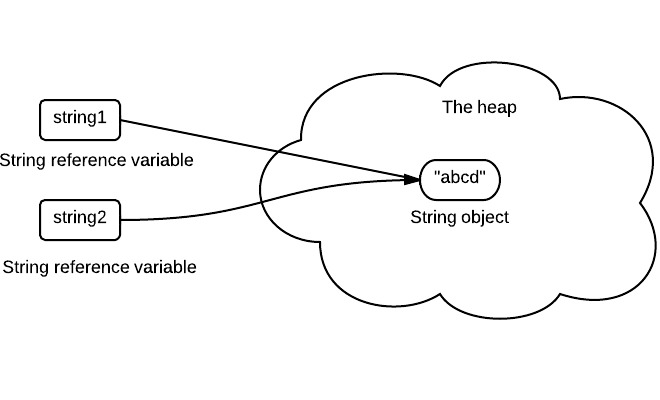What Is Unalterable Strings and How It Functions
In the world of shows, comprehending the idea of unalterable strings is vital for producing secure and durable applications. Unalterable strings refer to strings that can not be modified after they are developed, making sure information honesty and predictability within the code.
The Basics of Immutable Strings
Immutable strings, as a fundamental principle in programming, are personality sequences that can not be transformed once they are developed. This indicates that once a string is designated a value, that worth can not be modified. In languages like Python and Java, strings are unalterable objects, resulting in numerous ramifications in terms of memory monitoring and data integrity.
Among the essential benefits of unalterable strings is that they supply a complacency in data control. Considering that the content of an immutable string can not be modified, it ensures that the initial information stays intact, reducing the danger of unintended changes throughout program implementation (Why are strings immutable in Java?). This property also streamlines debugging processes, as designers can trust that as soon as a string is specified, its value will not be unintentionally changed
In addition, immutable strings promote reliable memory use. When a brand-new string is created based on an existing one, instead of modifying the original string, the new value is stored individually. This method improves efficiency by reducing memory fragmentation and streamlining memory allocation processes. Overall, comprehending the essentials of unalterable strings is critical for grasping programming principles and optimizing code efficiency.
Advantages of Immutable Strings
Building upon the protection and effectiveness advantages of unalterable strings, their advantages encompass boosting code reliability and simplifying simultaneous programming jobs. By being immutable, strings can not be modified after development, which eliminates the threat of unintentional adjustments in the information they save. This integral immutability makes sure that when a string is developed, its worth continues to be continuous throughout the program's execution, reducing the possibilities of insects brought on by unforeseen alterations.
Furthermore, immutable strings add to code dependability by making it less complicated to reason about the state of a program. Considering that strings can not be changed, programmers can trust that a string will always hold the same value, streamlining debugging and upkeep initiatives. This predictability results in a lot more dependable and steady codebases.
Execution in Shows Languages
Within different programming languages, the consolidation of immutable strings is an essential facet that impacts how information is dealt with and adjusted within code frameworks. The application of immutable strings differs throughout different shows languages, with each language supplying its own mechanisms to sustain this concept.
In contrast, languages like C and C++ do not have integrated support for unalterable strings. Designers in these languages need to by hand carry out immutability by applying regulations within their code to protect against direct adjustments to string objects.
Best Practices for Dealing With Immutable Strings
When managing unalterable strings in shows languages like Check Out Your URL Java and Python, sticking to ideal practices guarantees safe and effective information manipulation. Among the key ideal techniques is to utilize StringBuilder or StringBuffer as opposed to directly adjusting strings, particularly when taking care of extensive concatenation procedures. These classes offer mutable options for string adjustment, assisting to avoid unnecessary memory allotments and enhancing performance.
Furthermore, when functioning with sensitive information such as passwords or API keys, it is crucial to prevent keeping them as ordinary text in immutable strings. Making use of secure storage space mechanisms like char ranges or specialized libraries for dealing with sensitive details aids mitigate protection click threats linked with unalterable strings.
Real-world Applications and Examples
Exploring useful implementations of unalterable strings in different markets discloses their significant effect on data stability and system integrity. In the health care sector, immutable strings play an important role in ensuring the protection and privacy of client information. By stopping unapproved modifications to delicate info such as clinical documents and prescriptions, unalterable strings aid maintain compliance with stringent personal privacy policies like HIPAA.
Banks additionally gain from the unalterable nature of strings to enhance the protection of customer data and purchase documents. Immutable strings aid avoid scams and unapproved modifications to monetary info, providing a durable defense against cyber hazards and guaranteeing the trust fund and self-confidence of clients.

Final Thought
Best methods for functioning with unalterable strings consist of avoiding straight modifications and making use of approaches that return new string things. Real-world applications of immutable strings consist of data file encryption, caching, and string manipulation jobs.
Unalterable strings refer to strings that can not be changed after they are developed, ensuring data honesty and predictability within the code. When a brand-new string is created based on an this page existing one, instead than modifying the original string, the new worth is saved independently.In languages like Java and Python, strings are immutable by default, implying that once a string item is produced, its worth can not be altered - Why are strings immutable in Java?. Finest techniques for working with unalterable strings consist of preventing straight modifications and utilizing methods that return new string items. Real-world applications of immutable strings consist of data security, caching, and string control jobs